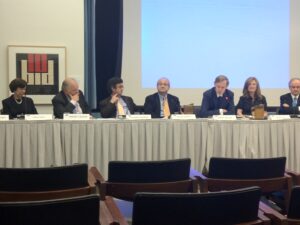The World Development Journal has published Nora Lustig’s, Luis Lopez-Calva’s, and Eduardo Ortiz-Juarez’s paper “Inequality in Latin America in the 2000s: The Cases of Argentina, Brazil, and Mexico” (September 2012).
Summary:
During 2000–10, the Gini coefficient declined in 13 of 17 Latin American countries. The decline was statistically significant and robust to changes in the time interval, inequality measures, and data sources. In depth country studies for Argentina, Brazil, and Mexico suggest two main phenomena underlie this trend: a fall in the premium to skilled labor and more progressive government transfers. The fall in the premium to skills resulted from a combination of supply, demand, and institutional factors. Their relative importance depends on the country

